American Geosciences Institute
American Geosciences Institute: Oceans
Seven hands-on lessons module in which students explore oceans. Inquiry-based investigations include properties of seawater, ocean water and currents, and features of the ocean floor.
PBS
Pbs Learning Media: Deep Sea Bestiary
This document from NOVA: "Into the Abyss" describes the physical and behavioral traits of some of the least-known and most unlikely creatures on Earth.
American Museum of Natural History
American Museum of Natural History: O Logy: Dive Into Worlds Within the Sea
Learn about three different marine ecosystems: coral reefs, the continental shelf, and the deep sea. Interactive game included, which will help players chart the interrelationships among organisms that live in each ecosystem.
Scholastic
Scholastic: Ocean Life
Good starting point for researching ocean life. Find general information, research-topic ideas, a glossary of important terms and people, and numerous links to related sites.
Scholastic
Scholastic: Ocean Life
Learn about leatherback turtles and dusky dolphins with the Earthwatch research teams in Costa Rica and New Zealand. Choose which animal you would like to learn more about then read field reports, meet a researcher, become a researcher...
Missouri Botanical Garden
Missouri Botanical Garden: What's It Like Where You Live? (Oceans)
This site contains a wealth of information. You can click on shorelines, temperate oceans and tropical oceans. Each page contains links to even more information.
Society for Science and the Public
Science News for Students: Beneath the Sea
What does it mean to be alive? Scientists are now revisiting this question as they discover previously unknown microorganisms at the bottom of the ocean.
American Museum of Natural History
American Museum of Natural History: O Logy: Marine Biology: The Living Oceans
This resource is a place for exploring, asking questions, finding information, meeting scientists, and learning about marine ecosystems.
Smithsonian Institution
National Museum of Natural History: Ocean Planet
Detailed website that was a companion to a 1995 traveling exhibit of the Smithsonian. Links to lesson plans and other educational materials are at the bottom of the page. Enter the exhibition to explore the world of the ocean.
Smithsonian Institution
National Museum of Natural History: Ocean Portal, You Navigate
Delight in the fresh colors, sights, and sounds on this dynamic site on the ocean. Major categories consist of Ocean Life & Ecosystems, The Ocean Over Time, Ocean Science, and The Ocean and You. New information on sharks, a slideshow...
Smithsonian Institution
National Museum of Natural History: Ocean Portal: Ocean Life & Ecosystems
From the tiny to the titanic, from the familiar to the undiscovered, the ocean offers a stunning diversity of marine life and nearly every kind of habitat imaginable. Dive in and explore them here. Links incude stories, videos and photos...
BBC
Bbc Nature: Wildlife: Common Jellyfish
Explore the fascinating world of the common jellyfish by learning about its distribution, behaviors, habitats, and classification through videos, photos, descriptions, and external links.
National Geographic Kids
National Geographic Kids: Animals: Orcas
Orcas, more commonly known as killer whales, are featured on this multimedia site. These video clips, audio clips, photographs and facts will be very beneficial to students doing research projects.
Better Lesson
Better Lesson: Ocean Research Project
Research paper writing is a lofty goal for kindergarten students, but this lesson will expose them to the process without being overwhelming. Students will divide into teams to learn about ocean creatures and then write a research paper...
American Museum of Natural History
American Museum of Natural History: Milstein Hall of Ocean Life
Tour the museum's famed exhibition hall dedicated to ocean life at this online recreation. Find videos, maps, species specimens, and images that let you experience many of the museum's resources on ocean life right from your desktop.
Missouri Botanical Garden
Missouri Botanical Garden: Temperate Oceans
This site from the Missouri Botanical Garden is a comprehensive site covering various topics related to temperate oceans. Be sure to check out the ocean animals link on the left side to learn more about the invertebrates that live in the...
Society for Science and the Public
Science News for Students: Motion in the Ocean
This article reports on recent research that explains why corals are in nearly constant motion. Includes a brief video. [0:16]
Encyclopedia of Earth
Encyclopedia of Earth: Abyssal Zone
This in-depth resource discusses the abyssal zone of the ocean. Includes a diagram and many facts about this zone.
PBS
Pbs: Secrets of the Ocean Realm
At this site students can read about sea creatures and ocean plant life, and see pictures of each.
Other
Ocean Futures: Kids: Creature Feature: Pygmy Seahorse
Learn about this truly unique animal and where it can be found, in Papua New Guinea. Includes video.
Other
[Archived Content] Pygmy Seahorses: Discovery and Conservation
Learn how these ocean animals were discovered and what is now being done to protect them.
San Diego State University
San Diego State University: Researching Research
This comprehensive unit site from the San Diego State University is geared towards seventh grade math and science students. "Students will chose a research project currently in progress and research it using traditional techniques, the...
Australian Broadcasting Corporation
Australian Broadcasting Corporation: Oceans Alive: Cool, Wet Facts
Did you know that turtles migrate 1400 miles to lay their eggs? Did you know that penguins swim underwater at 55 MPH? Click on this site to learn more interesting facts.
National Geographic
National Geographic: Geostories: The Ab Cs of Mp As
Each slide in this GeoStory includes information about an aspect of a marine protected aea, as well as a link to related content from National Geographic Education.








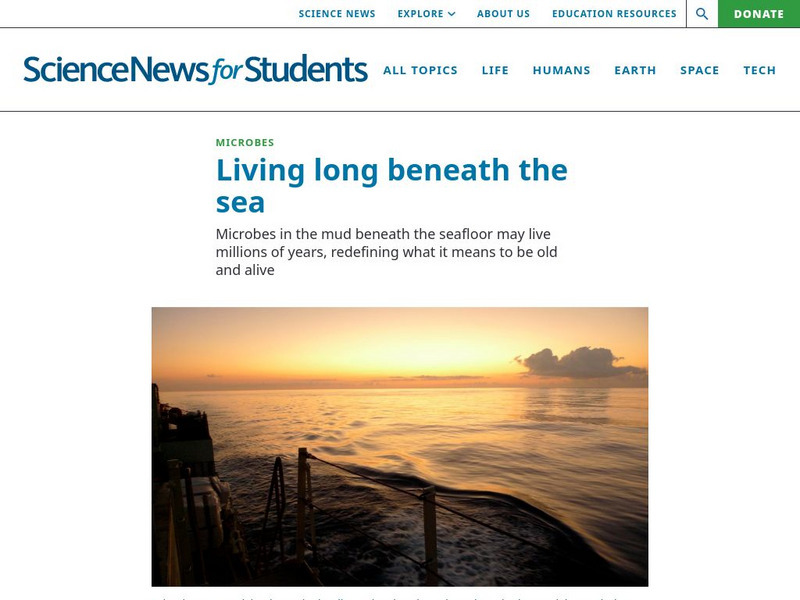



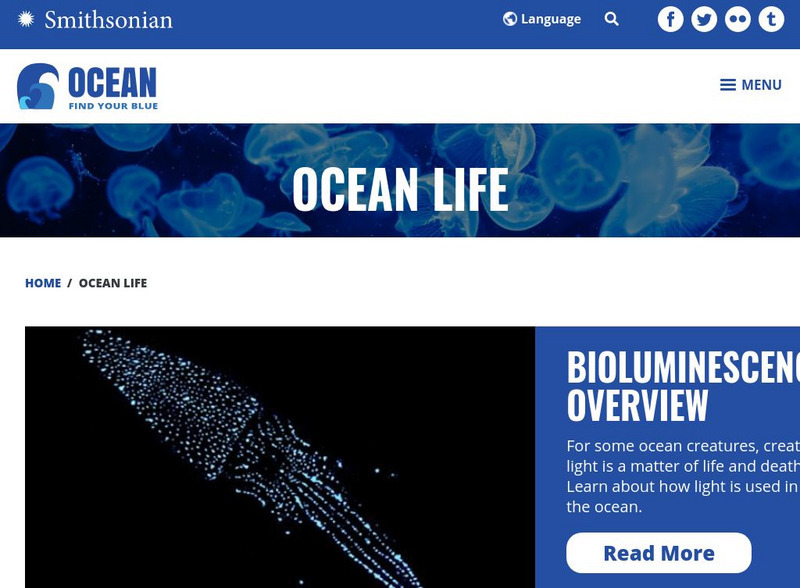
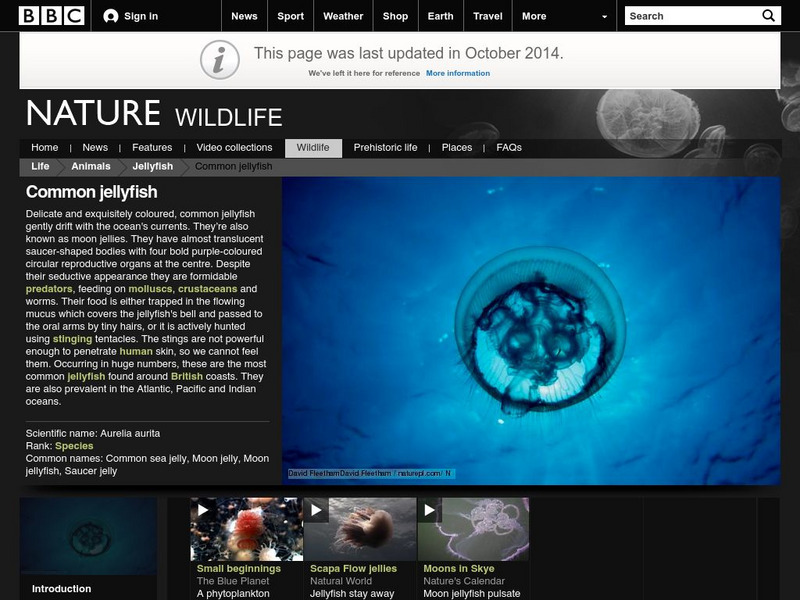
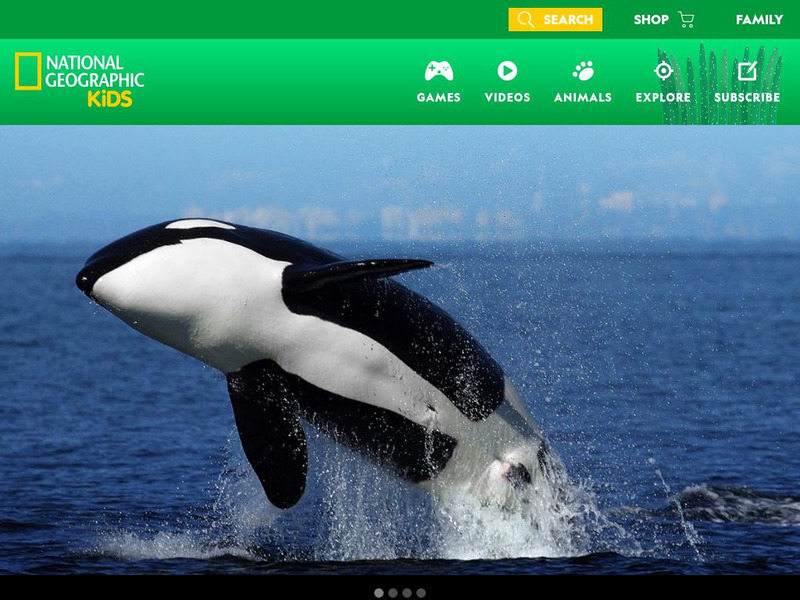
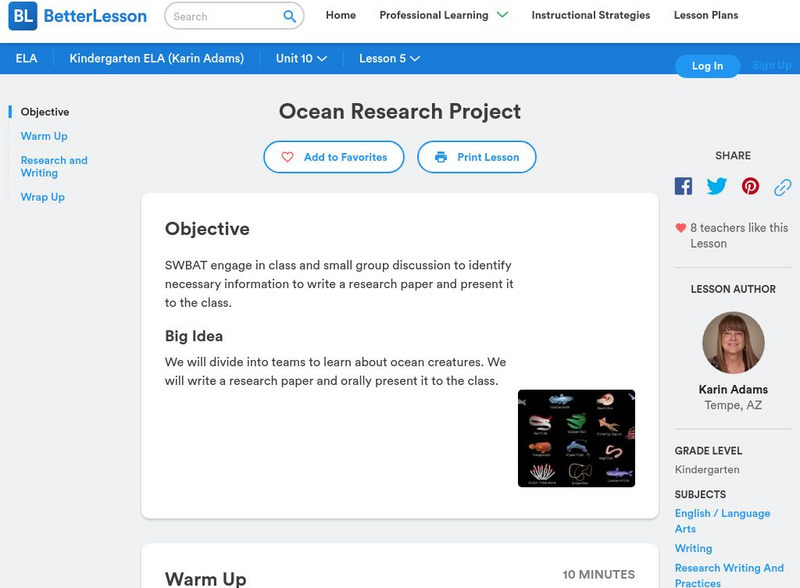





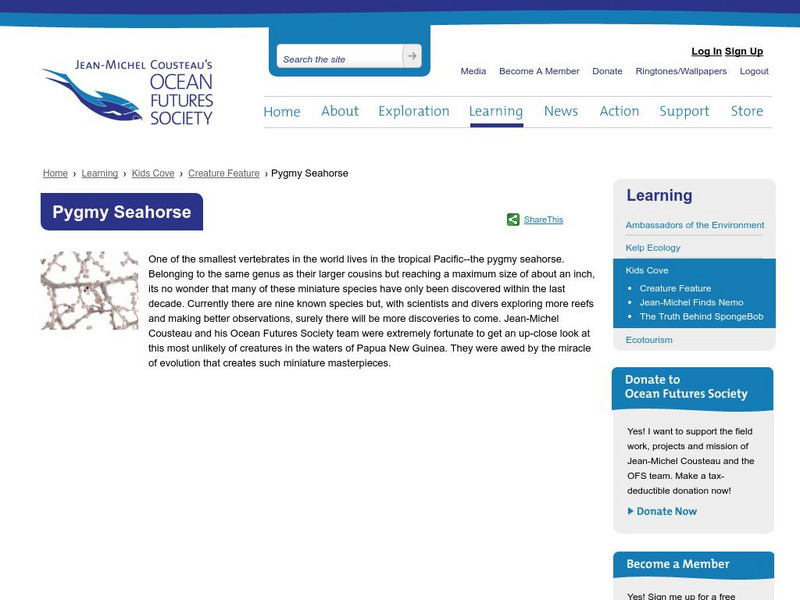
![[Archived Content] Pygmy Seahorses: Discovery and Conservation Website [Archived Content] Pygmy Seahorses: Discovery and Conservation Website](https://content.lessonplanet.com/knovation/original/100873-aaac4601daf6a5aec25aeddc4e3256aa.jpg?1661184788)

